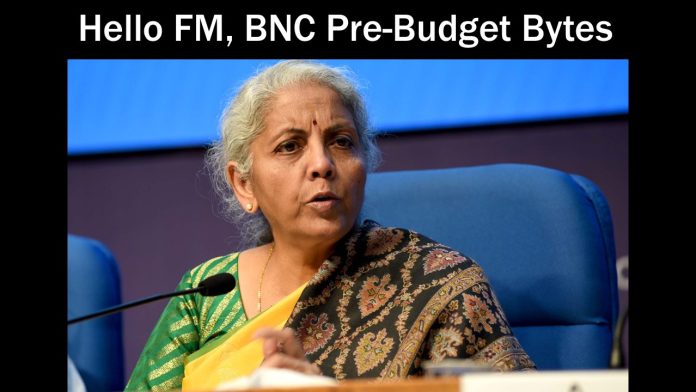The fenestrations, glasses, and lifestyle industries play a crucial role in shaping modern living spaces and promoting energy efficiency.
By DINESH CHANDRA PANDEY
Founder, Shankar Fenestrations and Glasses
The fenestration, glasses, and lifestyle industries significantly influence modern architecture, urban development, and consumer-driven trends.
Fenestration is the art of arranging doors and windows!
These sectors contribute to the advancement of sustainability and energy efficiency and improve the functionality and aesthetics of spaces. With the world focusing on green construction, innovative materials, and smart technologies, these industries have become key drivers of economic growth and environmental responsibility.
As the 2025 Union Budget approaches, the fenestration, glass, and lifestyle industries look forward to measures supporting growth, innovation, and sustainability. These sectors, which significantly contribute to modern infrastructure, energy efficiency, and aesthetic design, are seeking targeted initiatives to address current challenges and seize new opportunities.
- Tax Incentives for Green and Energy-Efficient Solutions: As the emphasis on sustainability continues to grow, the industry is increasingly turning to tax incentives and support for the adoption of energy-efficient technologies, including low-emissivity (Low-E) glass, solar control glass, and advanced fenestration systems. Policies promoting the use of double-glazed windows and other energy-efficient products are anticipated to enhance the demand for green building materials.
- Infrastructure and Real Estate Development: Heightened investment in infrastructure projects presents significant opportunities for the fenestration and glass sector, given the essential role these materials play in contemporary building design. Promoting affordable housing initiatives and urban redevelopment efforts is likely to drive the demand for innovative and cost-effective fenestration solutions.
- Promotion of Domestic Manufacturing: Under the “Make in India” initiative, the industry is planning measures to increase domestic production, including a reduction in import duties on raw materials such as silica sand and soda ash, which are essential for glass production. Incentives for setting up advanced manufacturing units for toughened, laminated, and insulating glass can reduce import dependency and improve global competitiveness.
- Initiatives for Technological Advancements: Budgetary support for research and development in smart glass technologies, including switchable and self-cleaning glasses, is a key demand. Subsidies or grants for incorporating IoT and AI-driven solutions in fenestration systems can improve functionality and user experience.
- Lifestyle Industry Focus: The lifestyle sector anticipates financial support for the use of sustainable materials and innovative designs in both luxury and everyday products. The adoption of circular economy practices like recycling and upcycling of glass and fenestration waste is motivated by incentives that are in line with global trends and consumer demand.
The fenestrations, glasses, and lifestyle industries play a crucial role in shaping modern living spaces and promoting energy efficiency. Budget 2025 presents an opportunity for the government to address key industry demands to foster innovation, sustainability, and economic growth. With strategic policies and targeted initiatives, these sectors can contribute more effectively to India’s vision of sustainable urbanization and a green future.




